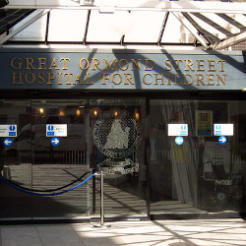NHS charities will be offered much greater independence from the Department of Health, the department said in a review document published today.
The Department of Health consulted on changes to the rules governing NHS charities in late 2012, and has now published plans for new rules in its response to the consultation, entitled Review of the regulation and governance of NHS charities.
Around 260 charities currently exist to receive and manage charitable funds on behalf of NHS trusts, with a total annual income of around £320m and total assets of £2.2bn. The largest is Great Ormond Street Hospital Children's Charity, with an annual income of £70m.
Under current rules, these organisations are bound by both charity law and NHS legislation, and the Health Secretary has the power to appoint and dismiss trustees. In all but 21 cases, the hospital trust is the sole corporate trustee of the charity. All charities are currently unincorporated and trustees have unlimited liability.
The planned new rules allow charities to set up an independent incorporated charity and transfer assets into it, but do not require them to do so. In all cases, the process will be subject to agreement from the Department of Health.
“The new charity, regulated solely by the Charity Commission, would be free to set its own constitution including objects, legal form and trustee appointments appropriate to its needs,” the review document said.
NHS charities have previously faced controversy because changes in accounting rules, together with the level of authority held by the Health Secretary and their associated trusts, made it likely that some NHS trusts would be required to include the charities’ resources on their own balance sheets. Under the new proposals, charities are unlikely to face these issues.
Amanda Witherall, chief executive of the Association of NHS Charities, said that her organisation was supportive of the proposals, and that the association would be working with the Charity Commission and the Department of Health to support charities which wished to make the transition.
“How many charities will want to take this up remains to be seen,” she said. “We suspect that the larger charities, which are the ones with individual trustees, will take it up immediately, not least because there are concerned about becoming incorporated. The smaller ones I suspect will show more interest as time goes by.”









